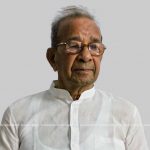Farangi Mahal
Cambridge Of The East
Nestled in the narrow lanes of the old city near the police chowki of Paata Naala, is a legendary hub of knowledge called Farangi Mahal. The family of this great institution of learning traces its origin from Hazrat Abu Ayub Ansari, the distinguished companion and host of Yasrib (Medina) of the Holy Prophet of Islam, Mohammad (peace be upon him). Allama Shibli Nomani, the distinguished Urdu, Persian and Arabic scholar mentioned Farangi Mahal as the “Cambridge of the East” in his works. It was aptly titled so by the great scholar and is not at all an exaggeration because this is one of those few families of the world in which literary and scholarly traditions have prevailed for more than a thousand years. This family made Lucknow a center of Islamic learning in the beginning of the seventeenth century.’
Ansar’ (The Helpers) was a title given by the Holy Prophet to the people of Aus and Khazraj tribes of Yasrib who gave refuge to the prophet when the latter and his companions were facing harassment at the hands of the Quraish of Mecca. From that day, all the members of the Aus and Khazraj tribes became known as Ansaris. When Prophet Mohammad reached Yasrib from Quba, every member of the Ansar tribe was desirous to become host of their mentor and expressed this desire to him. They were told that the prophet would stay with the family which was destined to become the host and its indication would be that his camel would sit before the door of the house of that fortunate person. The camel was accordingly left free. It passed from door to door but ultimately sat down before the door of the house of Khalid Bin Zaid popularly known as Hazrat Abu Ayub Ansari, who became the host of the prophet for six months.
The hospitality of the Farangi Mahal family, even towards strangers and passers-by to this day, verily proves their lineage. The air that hangs over the vast verandahs, narrow lanes, madarsas and courtyards is impregnated with a spirituality that is almost tangible. Few people would be knowing that this family also played host to the Father of the Nation, Mahatma Gandhi, who chose a modest room with a courtyard in its front. Even Gandhiji’s goat was pegged in the same room, which stands as it is today.
The descendants of the Ansaris or the ancestors of the Farangi Mahal family settled in India in a place called Sehali. The Farangi Mahal family originates from the four sons of Mulla Qutub ud Din Shaheed who was the only son of Mulla Abdul Haleem. Emperor Aurangzeb, who had full regard for Mulla Qutub ud Din whose eldest son Mulla Muhammad Asad was already in his service, was requested to allot some suitable residential place for Mulla Qutub ud Din’s family. As a result, two houses in Ehata-i-Charagh Beg in Lucknow, which was previously occupied by some European trader, were allotted to Mulla Asad to accommodate Mulla Qutub ud Din’s family members. Since, they originally belonged to a European, they were called Farangi ka Mahal. When the family expanded, the surrounding houses were purchased and built by different family members. When one enters the Farangi Mahal, one gets a feeling of a super joint family. The houses are connected to each other through narrow alleys and with every turn one encounters an abode of knowledge.
The letters of Gandhiji and Nehru have been framed that hang precariously on the walls. But the treasure lies in the ocean of knowledge that the scholars of Farangi Mahal are drenched in. Farangi Mahal played an important part in the establishment of Urdu press in Lucknow and Maulana Yaqoob was the first to do so. He established press for his newspaper, Karnama.
Dr. Wali ul Haq Ansari who is a descendant of this illustrious family and himself a distinguished scholar, has documented an invaluable book titled ‘Farangi Mahal- past and present’ that gives a detailed account of the family’s history, pedigree and scholars. In his concluding remarks, he reminds of a saying about the Ansar companions. Once the holy prophet prophesied that with the passage of time the number of their descendants would go down instead of increasing and a time would come when they would be like salt in flour but at the same time learning and education would always be with them. History proves that whatever has been stated is quite true. Facing persecutions and harassment, the Ansar families are only limited to Iraq, Iran, Afghanistan, Pakistan and India. Medina from where the Ansars originated, has now no such family except one who has migrated from Farangi Mahal itself. Sheikh Saadi of Iran, who was also a descendant of Ansars, testifies in his verse: Hama qabila-e-man aalimaan-e-deen budand Mara moallim-e-ishq-e to shairi aamokht” My entire clan consisted of the scholars of religion, The teacher of love however taught me the lesson of love. The writer is grateful to Khalida appi for her invaluable help, who is a daughter of the Farangi Mahal family and shares a special bond with the writer’s family spanning decades.
Saira Mujtaba




